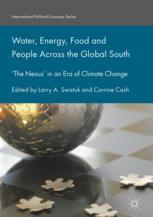

Most ebook files are in PDF format, so you can easily read them using various software such as Foxit Reader or directly on the Google Chrome browser.
Some ebook files are released by publishers in other formats such as .awz, .mobi, .epub, .fb2, etc. You may need to install specific software to read these formats on mobile/PC, such as Calibre.
Please read the tutorial at this link: https://ebookbell.com/faq
We offer FREE conversion to the popular formats you request; however, this may take some time. Therefore, right after payment, please email us, and we will try to provide the service as quickly as possible.
For some exceptional file formats or broken links (if any), please refrain from opening any disputes. Instead, email us first, and we will try to assist within a maximum of 6 hours.
EbookBell Team

5.0
110 reviewsThis collection critically engages the resource use nexus. Clearly, a nexus-approach to resource policy, planning and practice is essential if sustainable development goals are to be met. In particular, in an era of climate change, an integrated approach to water, energy and agriculture is imperative. Agriculture accounts for 70% of global water withdrawals, food production accounts for 30% of global energy use and a rising global population requires more of everything. As shown in this collection, scholars of resource development, governance and management are ‘nexus sensitive’, utilizing a sort of ‘nexus sensibility’ in their work as it focuses on the needs of people particularly, but not only, in the global South. Importantly, a nexus-approach presents academics and practitioners with a discursive space in which to shape policy through research, to deepen and improve understandings of the interconnections and impacts of particular types of resource use, and to critically reflect on actions taken in the name of the ‘nexus’.